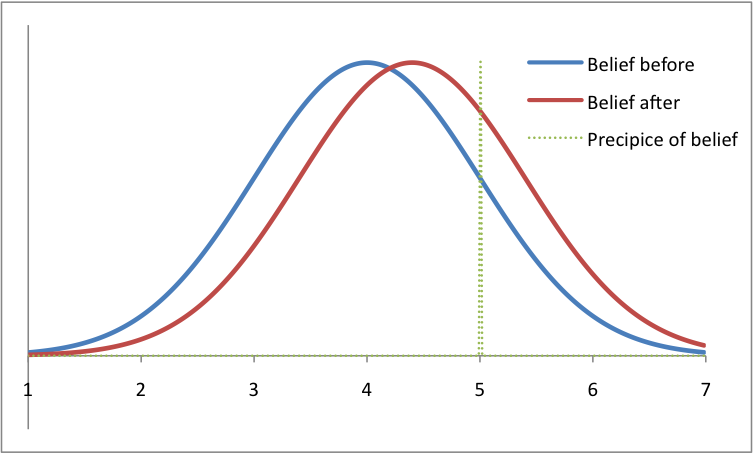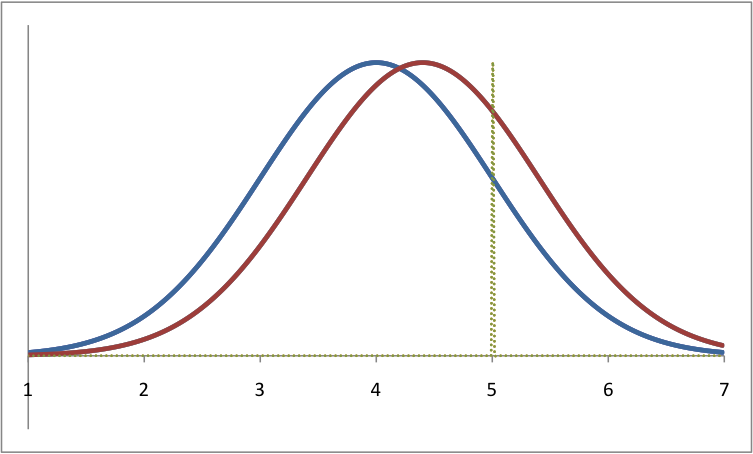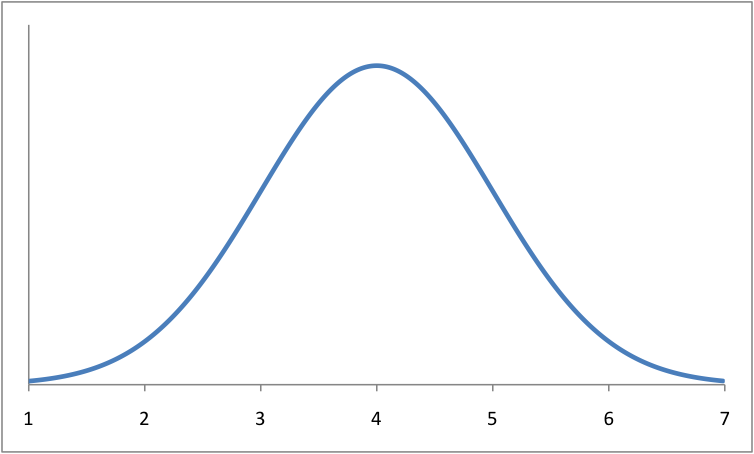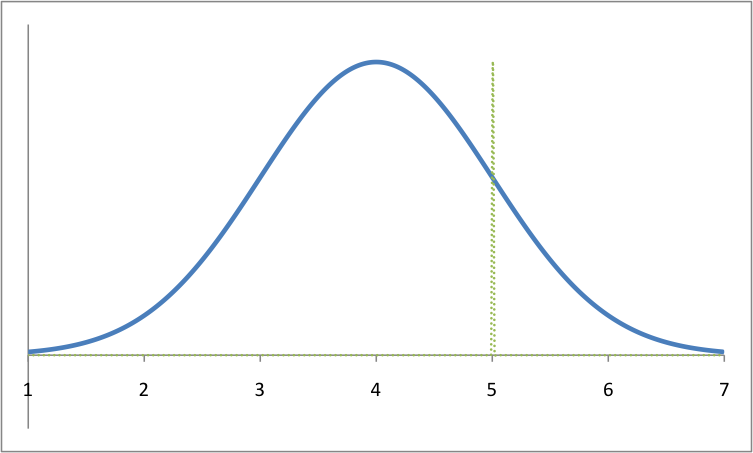A copy of this post appears at Phil Ferguson’s Skeptic Money blog.
The skeptic/atheist movement is an interesting case study in group dynamics. It is a group that is subject to all the same vices and cognitive blindnesses that plague all human beings: self-centredness, arrogance, in-group bias, lack of self-awareness, hostility and stubbornness in the face of dissenting ideas. However, it is simultaneously a group that is acutely aware of human failings and constantly looks for ways to overcome them. As a result, we see pretty regular blow-ups, scandals, and strings of self-righteous blog posts that take opposing sides of pretty much every minor issue that crops up.
I, for one, wouldn’t change that for the world. Political movements thrive on passion, and provided we don’t start splitting ourselves into irreconcilable camps that are too busy tearing each other down to work together, occasional (read: incessant) spats are a small price to pay. Debate is good, debate is important.
One of my favourite aspects of the group is that, despite the diversity of beliefs, we tend to be a fairly liberal bunch. This is, to my mind, the natural result of being a critical thinker – when you replace “obviously” with “evidently” as the sufficiently persuasive criterion, your beliefs become more fluid and nuanced. Things that are “obvious” are seldom so to everyone, and usually coloured with a whole host of assumptions, many of which are unwarranted. Freethinkers have been quick to adopt the cause of the LGBT movement, and are currently struggling through the task of embracing feminism. Freethinkers like Debbie Goddard, Sikivu Hutchinson, and myself (if I can flatter myself and place my name in such august company) are pushing to introduce anti-racist ideas into the freethinkers toolbox.
At the same time, I also recognize that there is a great deal of normative pressure involved in the group dynamic – even among a group of freethinkers, a fair amount of ‘group think’ tends to go on that we try and sweep under the carpet. Some ideas are adopted as slogans without really being vetted by the cerebral cortex. We’re only human and not every idea can be fully chewed over – we’d cease getting anything else done.
I’ve said all the above to say the following. The freethinking community has, of late, embraced the word “diversity” with both arms. Panels are popping up at major meetings to discuss the need for multiple voices, groups are starting to look less monocultural/monosexual, and discussants nod their heads sagely when ‘the D word’ comes up in conversation. We are, as a group, beginning to talk more and more about the importance of including women and visible minorities in the conversation.
Of course, I couldn’t call myself a skeptic if I wasn’t just a little bit cynical about what is fueling this fairly rapid adoption. Maybe ‘rapid’ is a mischaracterization borne of my own recent arrival to the movement, but it seems as though a few people started talking about diversity and then within a span of a year or so, everyone was talking about it. It may in fact be the case that people were flogging this issue for years before I started paying attention, and I just noticed at the last minute. If this is so, then I apologize. However, the salient point is that diversity went from being “not a big deal” to “central to the freethinking movement” very quickly.
The most optimistic explanation of this fact is simple: because the freethinking movement is open to new ideas and stocked with humanists, we are of course going to work to address inequities when they happen within our own ranks. It is no strange feat, therefore, for this particular group to make rapid wholesale changes in how they (we) talk and think about important issues. Diversity of thought is embraced because it is important, and we have recognized that.
A slightly more nuanced explanation is that a small number of opinion leaders started listening to those who had been speaking about the need for diversity, and the audiences of those opinion leaders adopted the new position. When speakers and media figures and bloggers began talking about the need for diversity in the movement, people who watch read and listen incorporated the subject into their lexicon without really needing the kind of understanding that is borne of a full explanation.
The most cynical of the potential explanations is that because the movement is chock-a-block with white liberals, the popularity of diversity is due to a strong desire to avoid appearing sexist/racist/anti-gay. Anyone familiar with the term ‘white guilt’ will immediately understand what I’m driving at – oftentimes being a member of the majority leaves you with a feeling of obligation and the overwhelming drive to ensure that nothing you do can be construed as bigoted. While this is a useful way of getting white people to do what you want (as a minority), it’s an incredibly limited and shallow solution that eventually breeds resentment.
My reason for suspecting the presence of this third motive comes from a few sources, but there is one instance that sticks out in my mind. I shared a link to a blog post I had written on Reddit’s r/atheism subgroup. In the comments section, someone disagreed with my general thrust along a predictable line (“why do people need to identify as black atheists? Why can’t we all just be atheists?”) When I tried to explain my position, the conversation ended with the commenter saying “well you should post an AMA [ask me anything – a common type of post on Reddit] about what it’s like to be a black atheist.” My response was “I have an entire blog about that. You should read it – it’s good.”
My interlocutor seemed to think that his involvement in the conversation was over by telling me that it was my responsibility to explain myself – despite the fact that I had already explained myself to him, and despite the fact that I have an entire website explaining myself. His interest was in shutting down the conversation because the topic was making him uncomfortable. The onus wasn’t on him to learn something, it was on me to make him feel better. This is typically symptomatic of white guilt – I am interested in feeling better, not in learning how to contribute.
I am inclined to think that there is a bit of all three of the above motives going on. As I said earlier, while we are freethinkers and skeptics, we are also human beings, and human beings are full of frailties and flaws. As much as we’d like to believe our thoughts are pure, true skepticism is an ideal only – not achievable in a complete sense. Also insofar as we are talking about a group of people, there are going to be a variety of factors that compel us to act. Given that fact, I am going to take a moment to speak to those who understand that diversity is good, but may not really understand why.
Why do we want diversity?
Most everyone is familiar with the parable of the blind men and the elephant – a group of men who cannot see encounter an elephant and each describes it differently, based on which part they are feeling. The resolution to that story, depending on the cultural context, is that a wiser man (or one who has encountered an elephant before) tells them that they are all right, despite their wildly disparate descriptions.
The truth is rarely accessible from a single perspective – there are often a wide variety of interpretations that bring us a fuller understanding of a phenomenon, particularly when we are talking about topics related to personal interaction. This is not to say that “all perspectives are equally valid” – that’s a load of post-modernist bullcrap. What it is to say is that when it comes to perception, it is rare that any one narrative captures the full experience, and that multiple overlapping points of view brings us a much better picture.
Given that one’s experiences as, say, a black woman or a gay man or a person with physical disability colours one’s perception in ways that someone outside of that group might have difficulty understanding, it is expedient to include members of those groups. Doing so grants us a wider and richer set of experiences that we might not otherwise be able to access. It opens us up to avenues and sensitivities and nuances that we’d overlook unless we were particularly attuned to them.
The typical rejoinder often comes back: “so are you saying it’s impossible for a white person to understand issues facing black people?” No, I am not saying that. If I believed that, then I’d have given up on writing long ago. There are certainly many white people that are scholars of the black experience that probably know the issues better than most black people themselves. What I am saying is that it is far more difficult to find people like that, and far easier instead to include people who have had those experiences personally, rather than by proxy.
Beyond this simple issue of expediency of wisdom, however, there is another reason why diversity is a good thing. I alluded to it last week, and while the example I gave was perhaps not the ‘smoking gun’ type of evidence for me to draw this conclusion, I hope that I may be granted a bit of leeway. It is entirely possible that diversity makes us smarter – that bringing a variety of experiences and types of communication to a group may, counter-intuitively, collectively make us better at solving problems. Failing to foster a diverse environment may be hurting our cause needlessly – surely the monocultural environment reported by minority skeptics isn’t intentional – more likely simply a product of ordinary inattention.
Concluding thoughts
While the freethinking movement has gained a great deal of momentum in the past few years, it is important to reflect and ‘take stock’ of where we are going. We have a number of tools at our disposal, and I think we are doing ourselves a disservice if we don’t begin to see diversity of experience as an asset rather than an obligation. Whatever our reasons for ‘talking the talk’ when it comes to diversity, the sooner we come to realize that it is a boon for us to ‘walk the walk’, the faster this process will take place.
TL/DR: There has been a lot of talk about ‘diversity’ in the skeptic/atheist movement of late, and I am a tad suspicious as to why it has gained such rapid acceptance. There are a number of reasons why this may be so, some more noble than others. Regardless of our motives, diversity is a benefit to the movement, and this should be a good enough reason on its own to work to encourage it.
Like this article? Follow me on Twitter!






